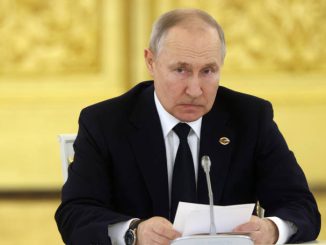
A champion in any particular field of sport must master many components. Adaptation is one of the essentials and Vitali Klitschko has certainly proven that he can adapt in the boxing ring. The Ukrainian world champion boasts an impressive record of 45 wins out of 47 professional fights, with 41 of these being knockouts. Klitschko’s more recent endeavours may be the true test of his adaptation, as he runs for President in Ukraine.
The former heavyweight boxer, and leader of the Ukranian Democratic Alliance for Reform opposition party, has become the de-facto leader of the people during the recent period of instability in Ukraine. Street protests have become the norm over the last couple of months, with Ukrainian President Yanukovych facing uproar after deciding against closer ties with the European Union. The state of anarchy has had drastic consequences, such as the recent deaths of five protestors in Kiev.
In his campaign for the presidency, Klitschko’s main tactic has been to issue demands from the government while also ensuring minimum mayhem from demonstrators. He has warned his supporters of the possibility of a violent crackdown in the event of such mayhem, but has also taken a tough line with the government.
Calls for Yanukovych to resign, demands for the release of political prisoners, as well as the prosecution of government forces who use violence against peaceful demonstrators are evidence of the strong political stance which Kilitschko is willing to take in the fight for democracy in Ukraine.
Understanding Klitschko’s roots may paint a clearer picture of his ideology. Aged 42, Klitschko is old enough to remember the dying days of the Soviet Union, while also still young enough to pamper the potential freedoms and excesses of the west, making him a representative of a specific generation of Ukrainians. The popularity which he has attracted in his homeland is evident statistically as he is head to head with Yanukovych in the polls.
Furthermore, Klitschko’s 2004 victory over Danny Williams in the ring was broadcast by video in Independence Square, Kiev during the Orange Revolution, another time of political turmoil in Ukraine.
Klitschko’s popularity in his homeland cannot be doubted, and may help him in his aim to restore the Ukranian nation and move closer to the EU. Question marks remain though.
The potential that he may share a stage with hard core Ukrainian nationalistic and anti-semitic figures is something which has drawn attention. Furthermore, there has been some level of confusion regarding Klitschko’s exact aims. As The Executive vice president of the Atlantic council Damon Wilson states: “On the one hand, he has supported the demonstrations demanding that President Yankuovych step down, and on the other he has consistently insisted that there is nothing more important than establishing the rule of law in Ukraine.”
The ambiguous nature of Klitschko’s approach could eventually be his downfall. Just as Klitschko had to work out his strategy for success in his boxing career, he may need to re-assess his strategy for his biggest political fight yet.
Brian Cunningham




Leave a Reply